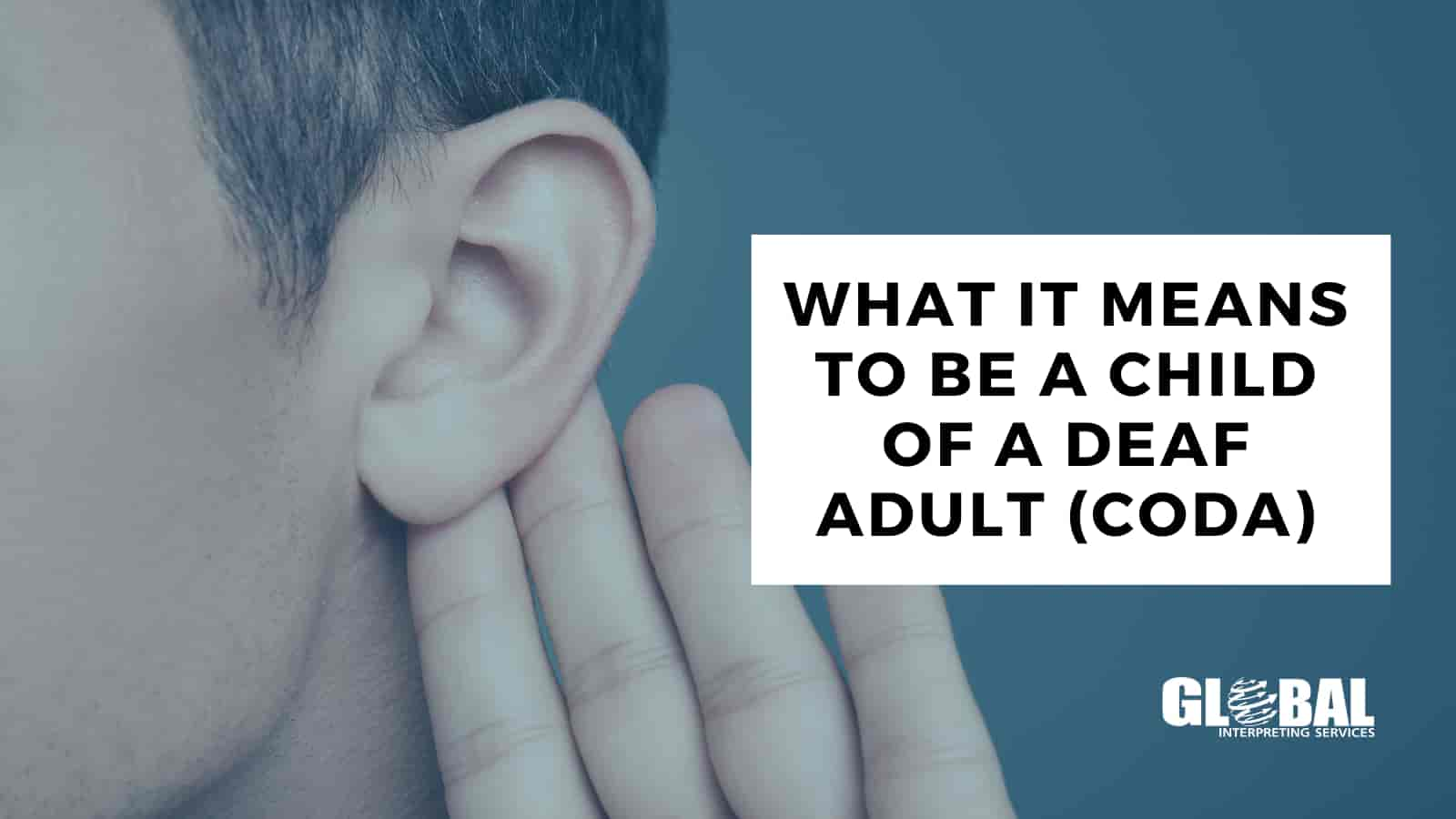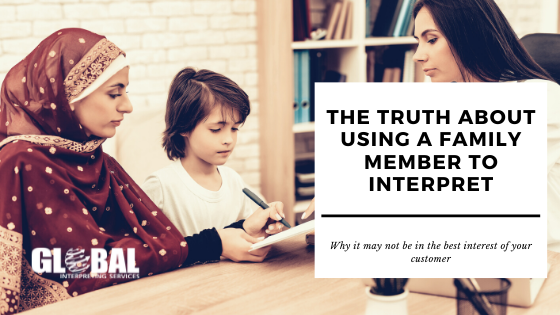The Deaf Community is so proud, as am I, that "CODA, 2021" won two Screen Actors Guild awards in February 2022. Never before has the spotlight shown so brightly on the Deaf Community or Interpreters than it has the last couple of years.
Now the Academy Awards are right around the corner and "CODA, 2021" will be on display again -nominated for Best Adapted Screenplay, Best Supporting Actor, and Best Motion Picture.
I grew up with a deaf father and I didn’t really think there was anything different about my house. He did not sign but he was profoundly deaf and relied on lip-reading to understand what people were saying. Some people from the Deaf Community would say that I am not a CODA because my father did not sign. Only those who grew up with Deaf parents that Signed have that determiner. Let’s talk for a quick minute about that argument and then I’ll tell you what’s it’s like growing up with a deaf parent.
I’m only speaking to Hearing people. People who have no prior knowledge of Deaf culture or the history of the Deaf Community. This is your first exposure. While always it’s best to learn from a native individual, and I’m not Deaf, here is a little background to get you started. (Remember, this is a blog! Not a novel).
The Deaf Community views itself as a cultural minority. Their language is Sign Language (in America it’s ASL and yes, every county has its own Sign Language).
It has its own cultural norms and rules. My Dad was not a part of the Deaf Community because he did not use Sign Language. He used his voice to communicate and he lipread. He couldn’t hear, but he got along in a hearing society because he used his voice. He spent a lot of time with speech teachers and most people didn’t know he had a hearing loss when he spoke, but they realized it when he didn’t understand what they were saying unless they were looking at him. In a nutshell, that gives you a quick overview of the difference between Deaf people who Sign and hard of hearing people.
There is a great book called, For Hearing People Only. It has some great explanations and great information if you want to know more. Don’t be scared when you see it, it’s thick, but Deaf Culture and the Deaf Community have a lot of history. They have influence I bet you didn’t even realize. Know where the football huddle was created? Gallaudet University, Washington, D.C. an all-Deaf university. Who developed the classifieds? I’m not telling…Google it or buy the book!
Growing up with a deaf father - I didn’t really know he was deaf, he was just Dad. You always had to look at Dad when you talked to him. You couldn’t yell for him, you had to go get him, or blink the lights. (Don’t throw anything at him…I know you were thinking it! That would get you grounded! He would say, “I don’t throw stuff at you, don’t throw stuff at me.”). You could wave, or wave things at him.
One of my favorite things to do when I was a kid was to help my Dad work on cars. My Dad was a great mechanic. He was probably even better because he was deaf. He could feel the vibrations in engines and know where issues were when people couldn’t figure their problems out. He would ask for a tool and I would hand it to him. You can’t say, “here” because he most likely won’t hear you. You have to give a little wave of the tool. It became second nature. I picked up the tool and hand it up and gave a little wave. I almost can’t pass a tool without giving it a little shake.
Never turn your back on a person who reads lips. Always look at them. Never look down.
My Dad was an excellent lip reader. He could lipread family members from far distances and in mirrors. He would pick my girlfriends and me up from the mall when I was a teenager, after we got home he would tell me I’m grounded. I would ask why? He would say, “You know why”.
Later, on future rides home, I saw him lip-reading me in the mirror. Next lesson, don’t cover your mouth in front of a person who reads lips. If you’re a teenager, it’s sure to get you a week in your room! When I would get in trouble at home or if we were having a discussion and I wanted to anger my Dad, I just had to look down too long or turn my back to him. He doesn’t know if you are smarting off. (That would also get you a week in your room!) Walking away, so that he can’t see what you’re saying, the same effect.
When my Dad got hearing aids our household changed. Finally, he understood that the chip bag he always crumpled closed during a TV program right when the most important dialog was about to be spoken…made noise! In those days you could not rewind live TV, and we did not have VCRs yet!
When you have a deaf person in the house, it’s a loud house. He did not understand things make noise. Chip bags, chairs, dishes…and the worst, the television. My Dad had some hearing or some hearing in some ranges. He would turn the TV up really high because there was no captioning back then. He never used captioning his whole life. My room was right off the family room. To this day it’s easier to fall asleep with the television on.
Hearing aids did not help him understand speech, but it did help him hear objects and noise in general. He now understood the chip bag made noise and was amazed by it. However, we had a fish tank, the filter made a buzzing sound. My Sister, Mom and I just tuned it out. I hadn’t noticed it. That buzzing sound about made my Dad go half out of mind crazy. We had to get rid of the fish tank. We gave it to friends. Hearing people are used to tuning out sounds. My Dad was not used to doing that yet, so consequently that fish tank noise was something that my Dad could not ignore.
When I was a child and I would go places with my Dad, I never minded repeating what people said for him. Sometimes we would go to a store or a restaurant and my Dad wouldn’t be able to understand someone. He would say to them, “I’m hard of hearing, you need to look at me when you talk to me please”. Or, “I’m deaf, you need to look at me when you talk to me please”. Often people were kind and paid attention to what they were doing and followed his direction. Sometimes, they ignored him and continue to look down or look away and talk to him.
Then, I became the Interpreter. “What did they say?” he would ask. The phone was the worst because oftentimes people did not want to talk with me, they only wanted to talk to him. He explained to them that he could not understand them. He could understand some people on the phone if the volume was up, the room was quiet, and their voice was a good pitch for him. If they had an accent, or if their voice was soft or high pitched, the phone was coming to my Mom, my sister or me.
I was fortunate enough to live next door to my parents for over a decade…guess who brought his cordless phone to me and I relived my childhood phone interpreting experiences? Dad. I never minded, but I did mind when the person on the other end would say they would call back tomorrow and talk to him, or they would call back later or next week. I would tell them, guess what? He will still be deaf.
My Dad passed last June, and I miss him terribly. I wish I could phone interpret for him again. I would give anything to be able to do it again…to see him coming across the driveway, phone in hand.
I know he would want me to say this: When dealing with a Deaf or hard of hearing person, have patience. Use what you have to communicate with them, pencil and paper, if they ask you to look at them when you speak with them please do it. All it takes is a little kindness.




